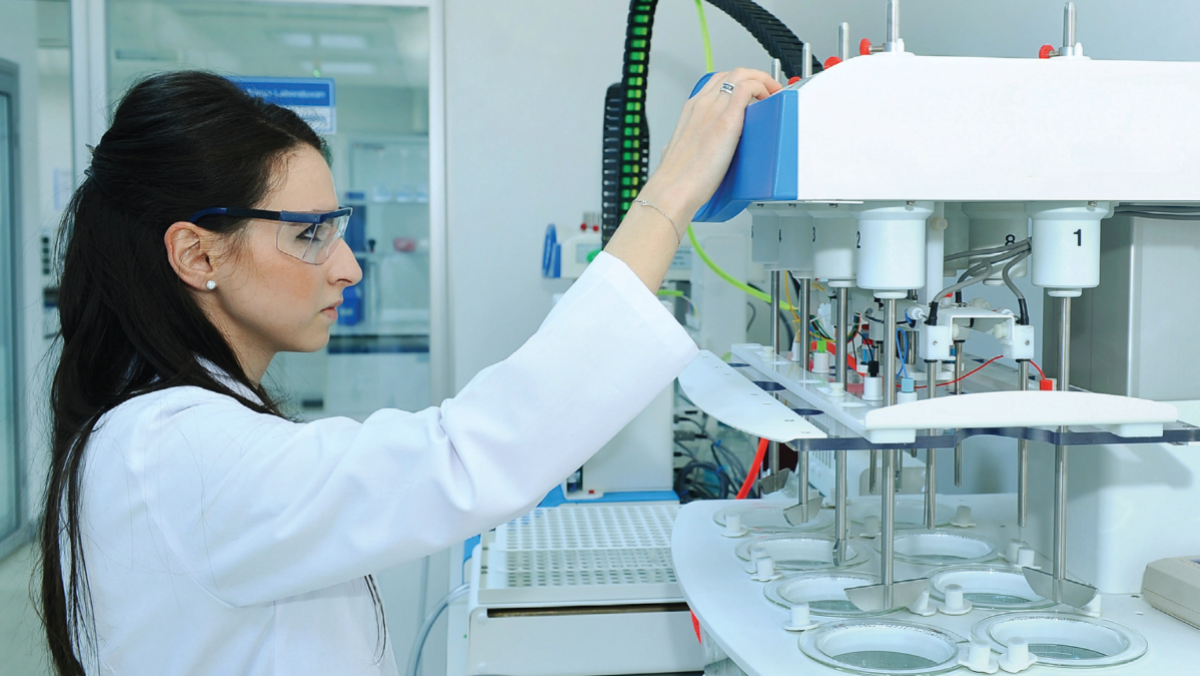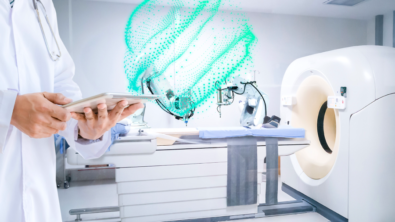Digital transformation: Smart innovative products require smart integrated systems

What does digital transformation mean for medical device manufacturers?
The next generation of medical technology manufacturing is here. Digital transformation gives medical device companies the opportunity to create change – something that is often talked about but not fully implemented. Digital transformation gives companies a much-needed, comprehensive view of the product lifecycle. It connects the granular pieces of innovation, quality and efficiency so that data is collected and becomes accessible and meaningful to the entire process.
Traditional medical devices are merging with high-tech electronics to create smarter and customized products. While these products are more connected, they are also more complex to design and produce, especially in a regulated environment. Innovation and digital transformation can often be found piled under paperwork and information silos.
Digitalization of inefficient processes is simply not enough. Using digital data to connect systems and leverage automation will give companies the ability to make better informed decisions. Innovation must be viewed through a broader lens – capturing and analyzing data from design, engineering and manufacturing processes. Only then can companies effectively focus on quality using contextualized data from the entire product lifecycle.
For change to be successful, companies must commit to:
- Running businesses in a proactive manner rather than a reactive manner
- Using technology advancements and tools rather than relying on point solutions
- Adjusting to operating within a changing regulatory framework
Transitioning from paper-based to digital processes
Medical device manufacturers must transition from paper-based processes to digital processes in three main areas: business, technology and regulatory.
- Business. Digital transformation in manufacturing requires a cultural metamorphosis. Cultural, behavioral and technical barriers must be broken for functional areas to work together. Collaboration across an ecosystem requires support from executive management and is critical to digital transformation. There is a large need for vision and leadership to drive toward technology that will create a data-driven environment.
- Technology. Digital transformation initiatives rely on people, processes, technology and data. However, data by itself is essentially useless. Many companies suffer from being data rich and intelligence poor (DRIP). Data must be actionable, intelligent and reliable. Only added context can create meaningful data to guide decision making. Weaving a digital thread through data sources encourages collaboration, innovation and improvements to medical devices.
- Regulatory. Compliance does not equate to quality. Medical device companies must drive toward quality and innovation with less emphasis on merely achieving regulatory compliance. Regulatory audits and inspections can be a disruption to manufacturing facilities. The FDA is now shifting to electronic inspections based on metrics. In turn, the FDA hopes that manufacturers will implement innovative systems that focus on improving product quality. To support electronic inspections, medical device companies will have to turn to manufacturing execution systems (MES) or integrate with complementary systems, such as product lifecycle management (PLM) and quality management systems (QMS).
In conclusion, digital transformation means harnessing data into knowledge to create better outcomes for medical device manufacturers. This industry-wide evolution provides companies the opportunity to manufacture smarter and connected products while minimizing error and costs.
Learn more about what digital transformation means for medical device manufacturers. Download the white paper today.


